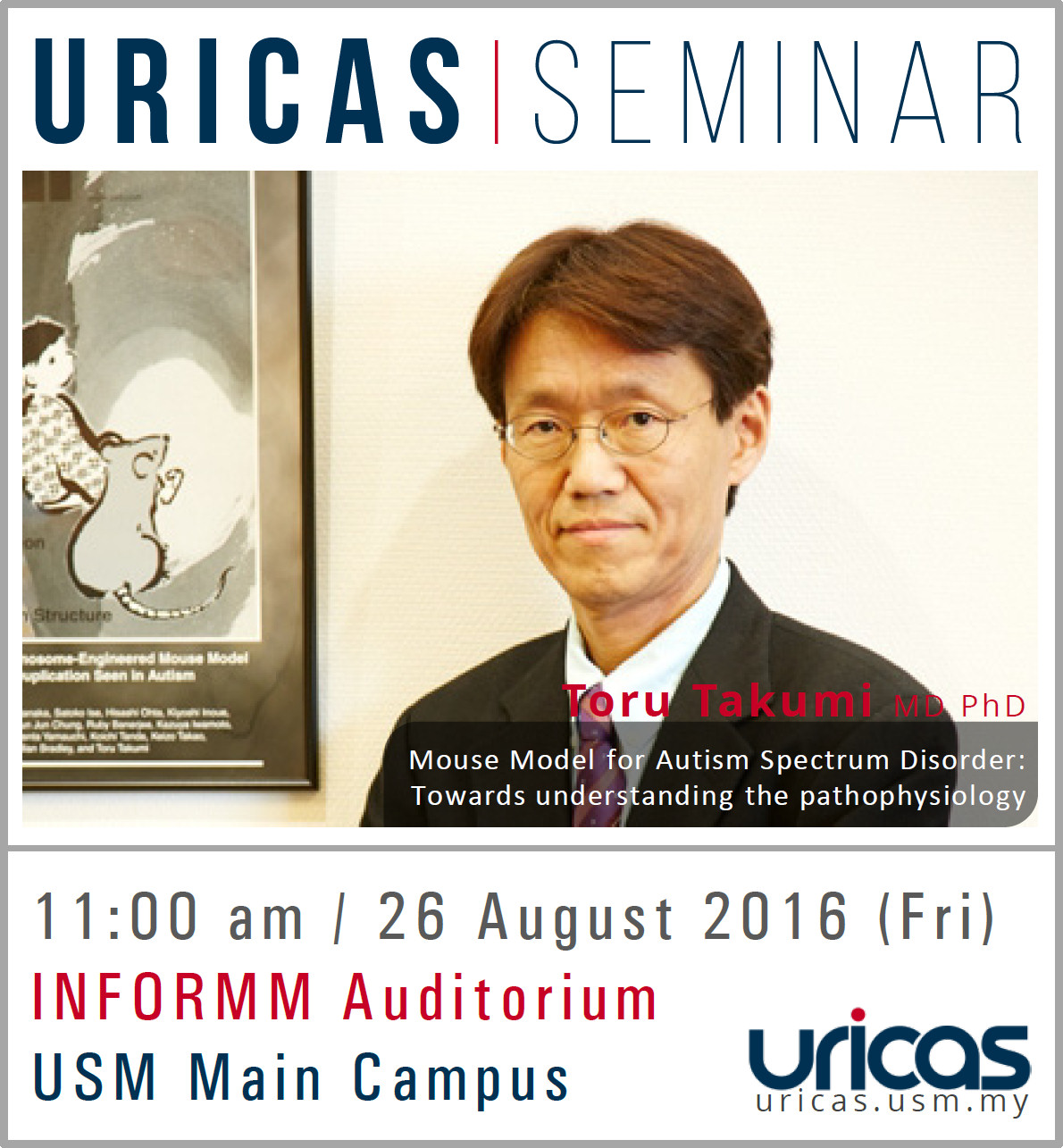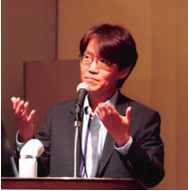
Date: 26 August 2016 (Fri)
Time: 11:00 am
Venue: INFORMM Auditorium, USM Main Campus
Mouse Model for Autism Spectrum Disorder: Towards understanding the pathophysiology
 Prof. Dr. Toru Takumi, MD, PhD
Prof. Dr. Toru Takumi, MD, PhD
Senior Team Leader
RIKEN Brain Science Institute
Summary
Autism is a complex psychiatric illness that has received considerable attention as a developmental brain disorder. Substantial evidence suggests that chromosomal abnormalities including copy number variations contribute to autism risk. The duplication of human chromosome 15q11-13 is known to be the most frequent cytogenetic abnormality in autism. We have modeled this genetic change in mice using chromosome engineering to generate a 6.3-Mb duplication of the conserved linkage group on mouse chromosome 7. Mice with a paternal duplication display autistic-like behavioral features such as poor social interaction and stereotypical behavior, and exhibit abnormal ultrasonic vocalizations. This chromosome-engineered mouse model for autism seems to replicate various aspects of human autistic phenotypes and validates the relevance of the human chromosome abnormality. This model is a founder mouse for forward genetics of a developmental brain disorder and an invaluable tool for its therapeutic development. I will show our analyses on these mice towards understanding the pathophysiology of autism spectrum disorder.
(Prof. Dr. Takumi’s visit to USM is hosted by Prof. Liong Min Tze)
